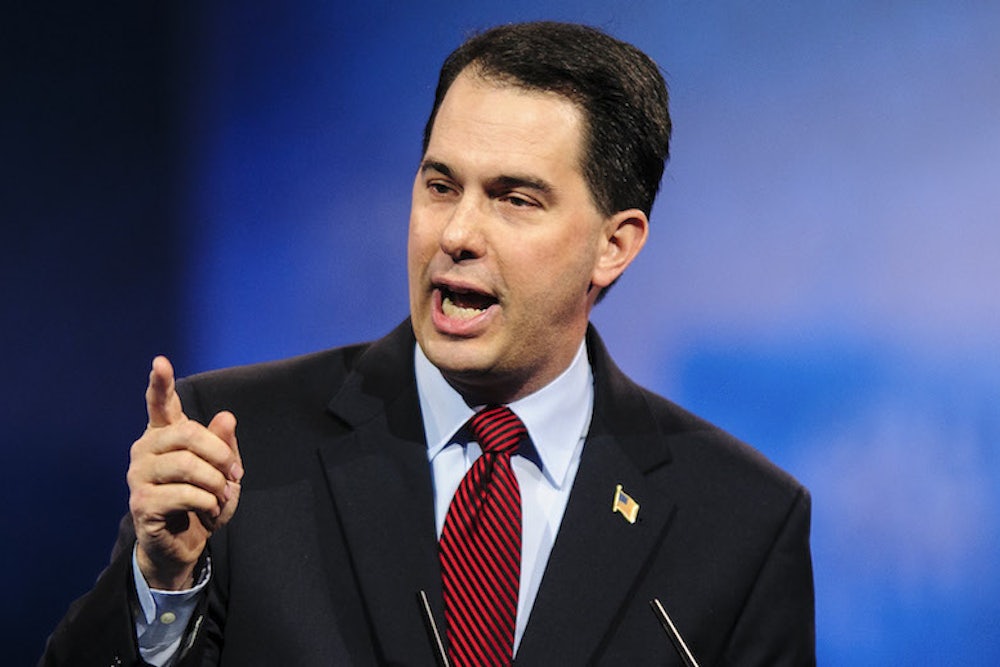On September 12, Wisconsin voting-rights groups began to scramble when the Seventh Circuit Court upheld the state's voter ID law, one of the strictest in the country. By the end of September, the same court had narrowly declined to re-hear the case en banc—giving voters and election officials mere weeks before the state's upcoming gubernatorial election to grapple with the law. Unless the Supreme Court overturns the decision in response to an emergency appeal filed Thursday by the ACLU, Wisconsin voters will have to show identification from a list of approved types at the November election. It’s hard to say how many people might be disenfranchised by the law, but in such a tight election, where Republican incumbent Scott Walker is neck-and-neck with Democrat Mary Burke, it doesn’t take many votes to swing the results.
In April, when District court judge Lynn Adelman issued an injunction against the law, he estimated that 300,000 registered voters across the state lack the IDs they need to vote. The judge arrived at that estimate by comparing the testimony of two witnesses, a statistical marketing consultant, Leland Beatty, and a professor at the University of Georgia, M.V. Hood III. Beatty and Hood both crunched through the DMV records with registered voter files to determine how many registered voters in the state lack either a driver’s license or state ID card, the two most common forms of identification. Using different methodologies, the two men produced different estimates. Hood said between 4.9 percent (167,351) and 10.9 percent (368,824) of registered voters lacked ID, while Beatty estimated 9.4 percent (317,735).
Even Hood’s low-end estimate of 167,351 disenfranchised voters is enough voters to swing a tight election. Walker won in 2010 by only 124,638 votes. According to the Huffington Post Pollster, Walker is currently leading Burke 48.3 to 46.3.
Walker’s supporters are more likely than Burke’s to show up at the polls in the first place. According to Marquette University’s latest polls, Walker leads by a five-point margin among those who say they are certain to vote. But, among those who aren’t as certain they’ll make it to the polls, Burke leads by an eleven-point margin. This gap is common in midterm elections, since Republican voters—usually white, wealthy, and older—have more time and resources to make it to polling stations for the elections that get less hype. The voter ID law might deepen this disparity, since it creates one more barrier to vote for those already on the fence.
The clock is ticking for voting rights groups to organize in response to the law. Mike Wilder from Wisconsin Voices said that his group began educating voters and helping them procure identification a few days after the law was upheld in mid-September. But it's not just the voters without identification in need of education. The majority of voters who have the necessary ID need to be reminded to bring it to the polls. A recent Marquette University poll found that 20 percent of voters didn't know they needed their IDs to vote.
